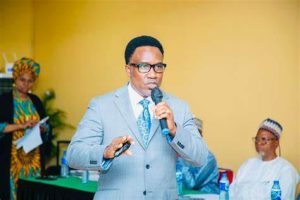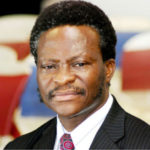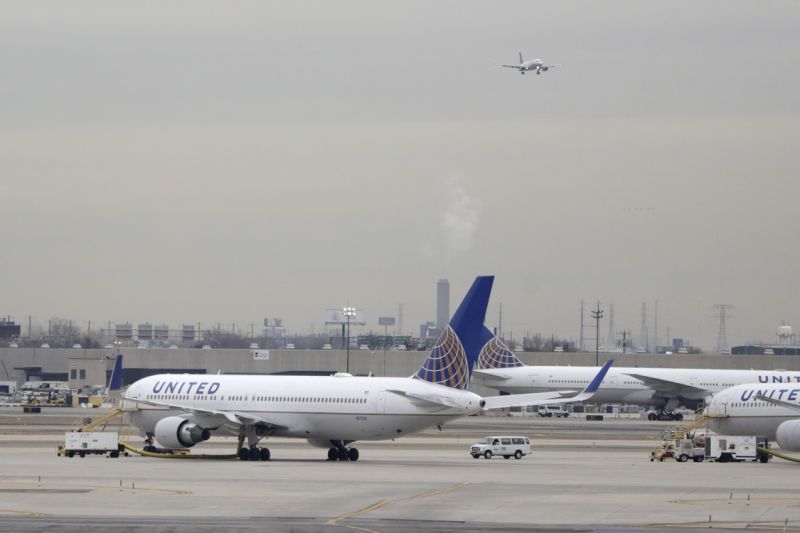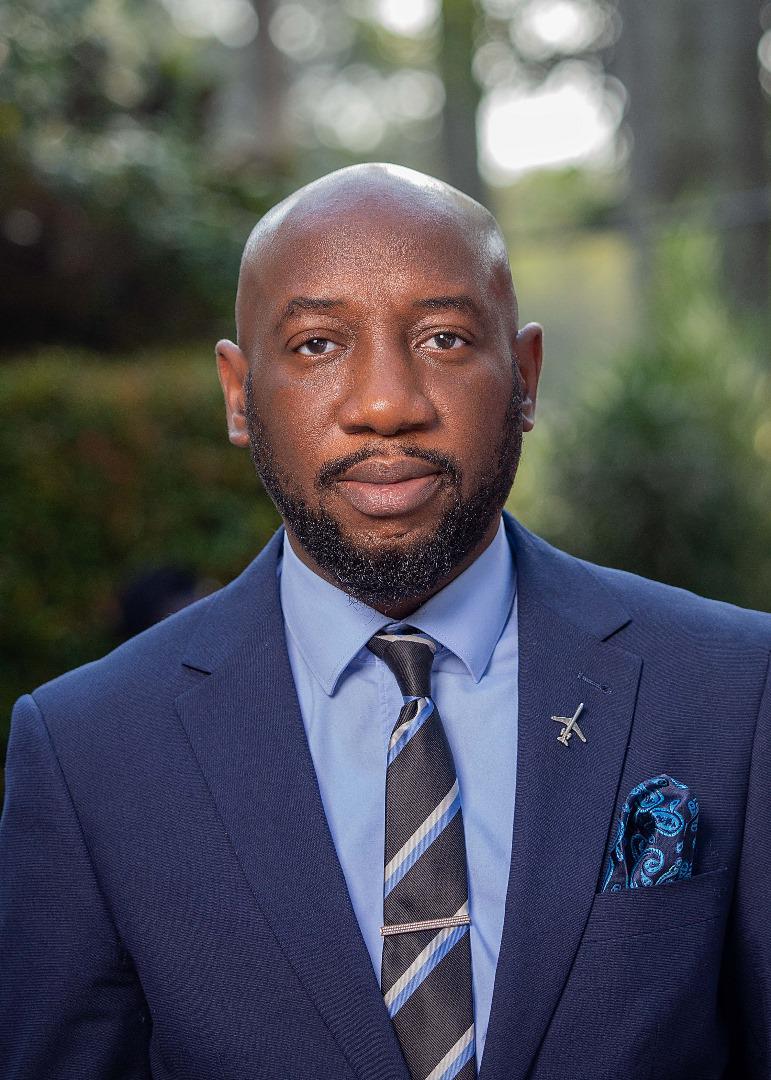Last week Nigeria Meteorological Agency (NIMET) went on strike in protest against poor welfare of the workers and the reneging of earlier agreement by the management.
NIMET statutorily provides weather forecast for airlines and it is internationally recognized as the sole provider of weather report for the aviation industry in Nigeria.
NIMET is a federal government agency charged with the responsibility to advise the federal government on all aspects of meteorology project. It prepares and interprets government policy in the field of meteorology and issues weather forecasts for the safe operations of aircraft, ocean going vessels and oil rigs.
During the period of the strike, which lasted for two days, the workers withdrew their services at all the airports except at the Murtala Muhammed International Airport, Lagos, but despite the withdrawal of their services, some of Nigerian airlines operated, relying on other sources for accessing weather reports.
Some of the airlines that operated during the period, told THISDAY that they had alternative sources of obtaining weather reports; that they could obtain weather report from google and from Jeppesen, which is an American company that offers navigational information, operations planning tools, flight planning products and other related services.
But THISDAY learnt from some pilots, who refused to operate flights during the period for safety reasons, said it was only Lagos airspace that Jeppesen uploaded weather reports and that was the only airspace covered by NIMET during the strike, which means that the airlines that operated scheduled commercial service depended on Google weather forecast for their operations to destinations outside Lagos.
On the first day of the strike, Nigeria’s major carrier, Air Peace, operated few flights from Lagos to Abuja and Owerri but cancelled all others, including the flight to Port Harcourt, which could not land due to weather issues. So, the airline took precautionary measures and cancelled all subsequent flights.
But United Nigeria Airlines issued a statement and assured passengers that it would operate. It said despite the strike by NIMET, it would still operate safely.
The statement, signed by the Public Relations Officer, Chibuike Uloka, stated: “While NIMET provides essential meteorological support to the aviation sector, our operations continue seamlessly through the deployment of alternative and internationally recognised weather data sources. These include real-time satellite monitoring, global aviation meteorological systems, pilot weather reports, and coordination with air traffic control services.
“United Nigeria Airlines wishes to reassure our valued passengers and the general flying public that our flight operations remain safe, reliable, and fully compliant with regulatory standards, despite the ongoing industrial action by the Nigerian Meteorological Agency (NiMet). Our flight planning and dispatch teams are fully equipped and working round-the-clock to ensure that all safety protocols are strictly observed, and passenger comfort remains uninterrupted.
Also, ValueJet notified its passengers that it would operate, but while it operated the travellers could bear in mind there could be delays and other disruptions.
“Please be advised that due to the on-going NIMET strike, there may be disruptions. However, we will keep you informed when or if the strike action starts to affect our flight operations.”
Many industry observers who spoke to THISDAY said that the airlines that operated couldn’t have done so because despite the fact they could source weather report from other sources, insurers, lessors and suppliers, who, THISDAY learnt monitored the event, recognised NIMET as the official source of weather information for schedule commercial airlines in Nigeria.
Aghast that some airlines operated despite the strike, a body known as Association of Professional Meteorologist of Nigeria (APMN), in a statement signed by its Abuja branch chairman, Comrade AwotuAuptre and also the President of Nigeria Meteorology Society, Professor ZachariaAdeyewa, indicated that APMN wrote a letter to the International Civil Aviation Organisation (ICAO) and World Meteorology Organisation (WMO) over the stance of some airlines flying without proper Meteorological briefing and reports.
The statement said: “Using quack form to get meteorological information is risky and dangerous to Nigeria aviation users due to safety reasons.”
The statement noted that a particular airline that operated during the time was not trained to issue meteorological reports or receive ISO certification to embark on “this fruitless journey for Nigerian aviation sector”, adding that the airlines that operated jeopardised the safety of passengers and the equipment.
Some pilots who spoke to THISDAY, noted that using Google weather report may not be able to give the pilots areas in Nigeria’s airspace with possible low-level winds shear, which is a sudden change of wind velocity and/or direction.
Reports indicate that low level wind shear was one of the major factors that led to the tragic crash of Sosoliso Airlines Flight 1145, a passenger flight that operated from Abuja to Port Harcourt and which crash landed at Port Harcourt Airport and went into flames on December 10, 2005, killing about 108 persons on board.
Seasoned aviator and pilot, the former Managing Director of the Nigerian Airspace Management Agency (NAMA), Captain Fola Akinkuotu, said it was expected that a pilot should have weather briefing before operating a flight, remarking that if a pilot said he got his weather report from Jeppesen, where is Jeppeson getting its weather report? According to him, Jeppeson gets its weather report from NIMET (as earlier stated that the agency only had weather report on Lagos during the NIMET strike because it was the only airspace NIMET provided its weather reports).
“The question is, where is Jeppeson getting its weather report. I remember when we were at Virgin (Nigeria Airways), we were getting our weather reports from Jeppeson and NIMET. Foreign airlines depend on what is approved for them. So, Jeppesonmust be getting its weather report from somewhere and it is from NIMET.
“We have to be careful about the statement justifying flying without getting your report from approved source. If your operational manual says that you will get your weather report from Jeppeson, you have to get it from Jeppeson. The non-availability of weather information from approved source may infringe on safety and approved source today is NIMET,” Akinkuotu who was also former Director General of Nigeria Civil Aviation Authority (NCAA) and former Managing Director of Aero Contractors, said.
There were also indications that if any incident had happened involving any of the flights operated by the airlines during the NIMET strike, it might not be covered by insurance. In fact, THISDAY learnt that all the flights operated during that period were not covered by insurance.
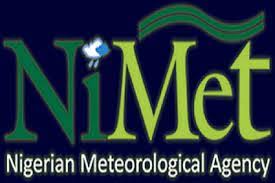
THISDAY spoke with former Commissioner, National Insurance Commission (NAICOM), who is currently the Founder and Principal Consultant, Dasunoth Consulting, Olurundare Sunday Thomas, who said that whether such flights would have insurance cover or not would depend on the policy the airline has with its insurers, noting that if the policy was breached, the insurer may not be obligated to claims payment.
“If the policy says that the airline will source its weather information from NIMET and it sourced its weather report from another source, if there is incident, the insurer may not be liable on claims payment, if there was any breach; so, it depends on what is in the policy,” he said.
THISDAY also learnt that because NIMET provided weather report on Lagos, many foreign airlines operated, even Air Peace operated its London flights, but the foreign carriers like British Airways, Air France, KLM and others indicated that if the strike had continued to the third day they would have suspended flight service to Nigeria.
Inside source told THISDAY that Air Peace lost about N3 billion during the period it suspended flight operations but it also received commendations from international aviation organisations, lessors and insurers for taking precautionary measures and critical decisions to stop operations during the period.
Many industry insiders, including the airlines, posited that NCAA should have issued a directive during that period, but what happened has gleaned at the Standard Operating Procedures (SOPs) of some airlines.


